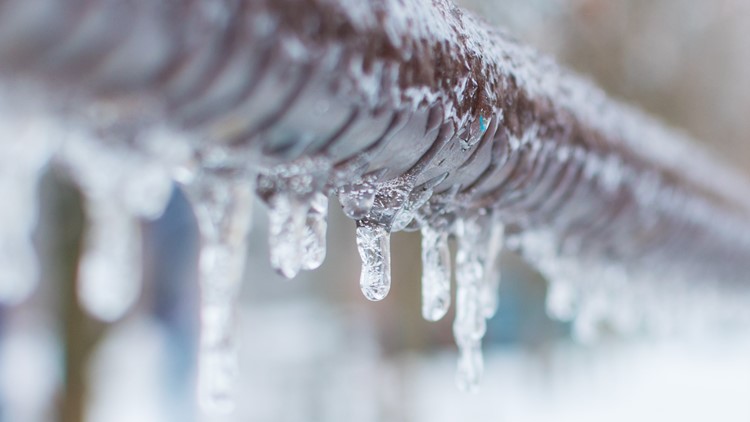How to Protect Pipes from Cold Weather Issues: Essential Tips
How to Protect Pipes from Cold Weather Issues: Essential Tips
Blog Article
They are making a number of good pointers on the subject of How To Avoid Freezing Pipes overall in this article on the next paragraphs.

Cold weather can ruin your pipes, especially by freezing pipes. Here's just how to stop it from happening and what to do if it does.
Intro
As temperatures decrease, the threat of frozen pipes boosts, possibly resulting in pricey repairs and water damage. Comprehending just how to prevent frozen pipes is vital for homeowners in cold climates.
Prevention Tips
Protecting prone pipelines
Cover pipelines in insulation sleeves or make use of heat tape to protect them from freezing temperatures. Focus on pipelines in unheated or outside areas of the home.
Heating strategies
Keep indoor rooms properly heated up, specifically areas with pipes. Open up cupboard doors to permit cozy air to flow around pipes under sinks.
How to recognize frozen pipelines
Seek decreased water circulation from taps, uncommon odors or noises from pipes, and noticeable frost on revealed pipelines.
Long-Term Solutions
Structural adjustments
Think about rerouting pipelines far from outside wall surfaces or unheated locations. Include added insulation to attic rooms, cellars, and crawl spaces.
Updating insulation
Buy high-quality insulation for pipelines, attic rooms, and wall surfaces. Appropriate insulation assists keep consistent temperature levels and minimizes the risk of icy pipes.
Securing Outdoor Plumbing
Yard hose pipes and outside taps
Detach and drain pipes garden hose pipes before winter season. Set up frost-proof spigots or cover outdoor faucets with insulated caps.
Understanding Icy Pipelines
What triggers pipes to freeze?
Pipelines freeze when exposed to temperatures listed below 32 ° F (0 ° C) for prolonged periods. As water inside the pipelines ices up, it expands, taxing the pipe walls and possibly triggering them to rupture.
Threats and problems
Frozen pipelines can cause water disturbances, building damage, and pricey repairs. Burst pipelines can flood homes and cause considerable architectural damages.
Indicators of Frozen Pipeline
Determining icy pipelines early can avoid them from bursting.
What to Do If Your Pipelines Freeze
Immediate activities to take
If you suspect icy pipes, maintain faucets open to soothe pressure as the ice thaws. Use a hairdryer or towels taken in warm water to thaw pipes gradually.
Conclusion
Stopping icy pipes needs aggressive measures and fast feedbacks. By understanding the causes, indications, and safety nets, homeowners can safeguard their pipes throughout winter.
Helpful Tips to Prevent Frozen Pipes this Winter
UNDERSTANDING THE BASICS: WHY PIPES FREEZE AND WHY IT’S A PROBLEM
Water freezing inside pipes is common during the winter months, but understanding why pipes freeze, and the potential problems it can cause is crucial in preventing such incidents. This section will delve into the basics of why pipes freeze and the associated problems that may arise.
THE SCIENCE BEHIND FROZEN PIPES
When water reaches freezing temperatures, it undergoes a physical transformation and solidifies into ice. This expansion of water as it freezes is the primary reason pipes can burst. As the water inside the pipe freezes, it expands, creating immense pressure on the walls. If the pressure becomes too great, the pipe can crack or rupture, leading to leaks and water damage.
FACTORS THAT CONTRIBUTE TO PIPE FREEZING
Low Temperatures: Extremely cold weather, especially below freezing, increases the risk of pipes freezing. Uninsulated or Poorly Insulated Pipes: Pipes located in unheated areas, such as basements, crawl spaces, or attics, are more prone to freezing. Insufficient insulation or lack of insulation altogether exacerbates the problem. Exterior Wall Exposure: Pipes running along exterior walls are susceptible to freezing as they encounter colder temperatures outside. Lack of Heating or Temperature Regulation: Inadequate heating or inconsistent temperature control in your home can contribute to frozen pipes. PROBLEMS CAUSED BY FROZEN PIPES
- Pipe Bursting: As mentioned earlier, the expansion of water as it freezes can cause pipes to burst, resulting in significant water damage.
- Water Damage: When pipes burst, it can lead to flooding and water damage to your property, including walls, ceilings, flooring, and personal belongings.
- Structural Damage: Prolonged exposure to water from burst pipes can compromise the structural integrity of your home, leading to costly repairs.
- Mold and Mildew Growth: Excess moisture from water damage can create a favorable environment for mold and mildew growth, posing health risks to occupants.
- Disrupted Water Supply: Frozen pipes can also result in a complete or partial loss of water supply until the issue is resolved.
WHY CERTAIN PIPES ARE MORE PRONE TO FREEZING
- Location: Pipes located in unheated or poorly insulated areas, such as basements, crawl spaces, attics, or exterior walls, are at higher risk of freezing.
- Exterior Pipes: Outdoor pipes, such as those used for irrigation or exposed plumbing, are particularly vulnerable to freezing as they are directly exposed to the elements.
- Supply Lines: Pipes that carry water from the main water supply into your home, including the main water line, are critical to protect as freezing in these lines can affect your entire plumbing system.
- Underground Pipes: Pipes buried underground, such as those connected to sprinkler systems or outdoor faucets, can be susceptible to freezing if not properly insulated.
https://busybusy.com/blog/helpful-tips-to-prevent-frozen-pipes-this-winter/

I am just very fascinated with Prevent Frozen Pipes and I'm hoping you appreciated our blog entry. Sharing is caring. Helping people is fun. I praise you for your time. Please check our website back soon.
Get A Quote Report this page